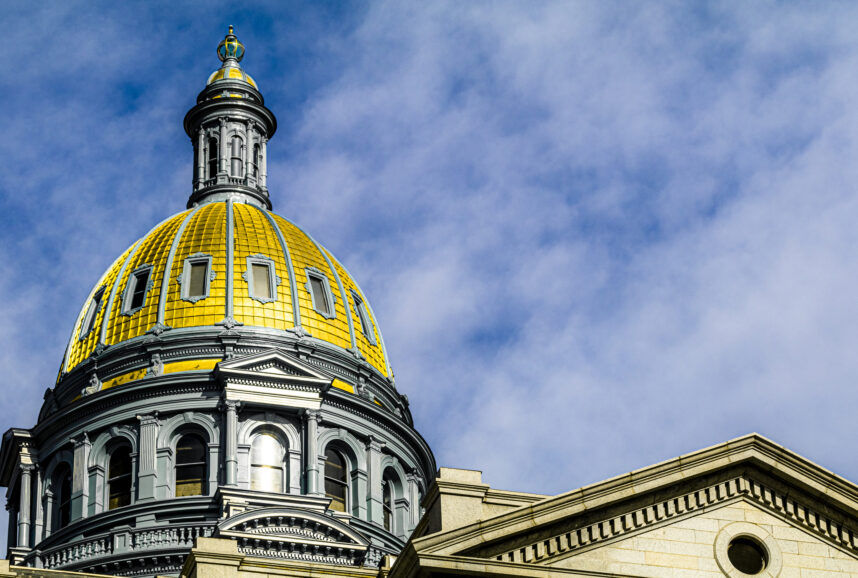GASB rule changes do not affect contribution rates or what employers owe.
Recently, new accounting rules adopted by the Governmental Accounting Standards Board became effective for governmental employers who provide their employees with a defined benefit pension plan. These new rules apply to pension plans administered by the Colorado Public Employees’ Retirement Association (PERA). They will impact virtually all participating employers of PERA and change how they measure and disclose information for financial reporting purposes related to their participation in PERA’s defined benefit plans. PERA serves as the retirement plan for more than 400 public employers in Colorado.
Historically, participating employers have reported a liability in their financial statements to the extent that contributions paid to PERA were lower than the amount required by Colorado statute. Typically, the liability calculated under this approach represented contributions that were owed to PERA for the last payroll period in the employer’s fiscal year and not paid until the next fiscal year. The new accounting rules require participating employers to report a portion of the difference between PERA’s assets under stewardship and today’s value of future benefit obligations in their financial statements. This is referred to as the net pension liability and currently represents a much larger liability than what was historically reported.
While these new rules impact how governments state their pension obligations for financial reporting purposes, the new rules do not change in any way the actual liabilities owed by state government, school districts, or other local and municipal governments. The new rules also do not change or affect the contribution rates to PERA, which are set in statute by the Colorado Legislature. Therefore, there is no change to the contribution amounts employers are required to pay under Colorado law based on the new reporting requirements. In fact, even if employers had the financial resources to do so, under Colorado law they would not be able to send additional payments to PERA with the objective of removing their portion of the liability from their financial statements.
It’s also important to note that while the new rules provide an alternative method for measuring a government’s pension obligations, they are not meant to assess the adequacy of assets under stewardship to pay future benefit obligations, the adequacy of contribution rates set by the Colorado legislature, or the overall sustainability of PERA. Historically, these assessments have been made by an actuarial firm at the direction of PERA’s Board who is held to the standard of conduct of a fiduciary for PERA’s membership. These assessments will continue to be made in the future according to PERA’s funding policy pursuant to Colorado statute.
Rating agencies have been aware of the funding policies and status of governmental pension plans. They have historically incorporated that information into their analysis of a government’s ability to meet its debt obligations. Standard and Poor’s issued a publication stating that it does not anticipate significant revisions to states’ ratings solely based on the changes promulgated by the Government Accounting Standards Board. Moody’s approach to analyzing pension liabilities does not incorporate these new accounting rules and their methodology to assess creditworthiness remains fundamentally unchanged. In a recent announcement, Moody’s has indicated it expects the credit impact due to the new accounting rules to be minimal.
In 2010, the Colorado Legislature enacted significant reforms, known as Senate Bill 1, to ensure PERA’s long-term sustainability. Under this bipartisan legislation, members pay more and work longer, retirees receive less in retirement and employers gradually contribute more. Over time, these reforms will accelerate the rate at which employers pay off their pension liabilities. Over the next several decades, the net pension liabilities reported by government employers in PERA are projected to decrease until the plan is fully funded. As a result of Senate Bill 1, PERA is on track to become fully funded while continuing to pay retirement dollars to former public employees.
Although it will take time for PERA to achieve fully funded status provided by the reforms of Senate Bill 1, employers will continue to benefit today from the sound fiscal management and economies of scale PERA offers. Members of PERA will continue to have an attractive and secure retirement benefit. PERA will continue to provide the State of Colorado with a continuous economic stimulus in the form of retirement dollars that are returned to retirees in every Colorado county.
Resources
StewardshipThe practice of overseeing or managing something entrusted to one’s care. PERA’s approach to investment stewardship is focused on ensuring the financial sustainability of the fund that pays benefits to retirees and beneficiaries.FiduciaryA person who manages money on someone else’s behalf and who has a sworn responsibility to manage those funds in the best interest of the client. Defined benefitAlso known as a pension, this is a type of pooled retirement plan in which the plan promises to pay a lifetime benefit to the employee at retirement. The plan manages investments on behalf of members, and the retirement benefit is based on factors such as age at retirement, years of employment and salary history.




